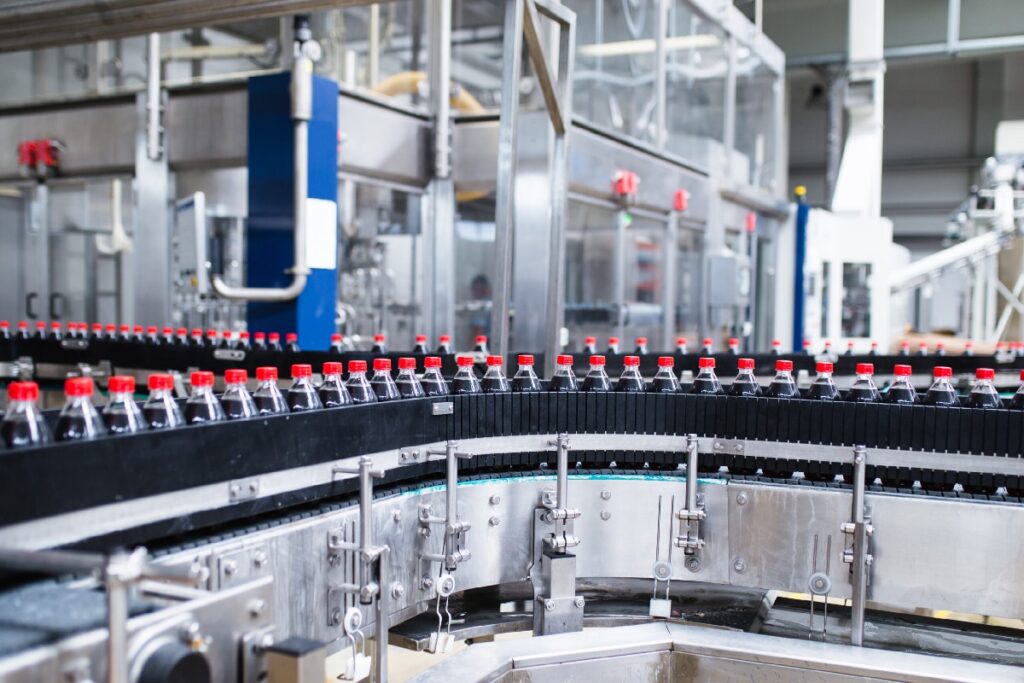In the ever-evolving landscape of manufacturing and production, filling machines have become indispensable tools, driving efficiency and precision across industries. From food and beverages to pharmaceuticals, these machines ensure that products are accurately measured, packaged, and delivered to consumers, meeting both demand and regulatory standards. In Singapore, where industrial output accounts for nearly 20% of the GDP, embracing cutting-edge filling solutions is not just a trend but a necessity for staying competitive in a global market.
But what makes filling machines so essential, and how are they shaping the future of manufacturing? Let’s explore.
What Are Filling Machines and Why Are They Important?
Filling machines are automated or semi-automated systems designed to fill liquids, powders, granules, or solids into containers such as bottles, cans, pouches, or tubes. They are pivotal in ensuring uniformity, reducing waste, and increasing production speed.
Industries That Rely on Filling Machines:
- Food and Beverage : For bottling drinks, packaging sauces, and filling snack pouches.
- Pharmaceuticals : Ensuring precision in filling capsules, vials, or syringes.
- Cosmetics : Dispensing creams, lotions, and perfumes.
- Chemical : Filling paints, solvents, and cleaning agents.
In a bustling hub like Singapore, where exports of pharmaceuticals and chemicals exceed S$50 billion annually, efficient filling processes are integral to maintaining global supply chain standards.
Types of Filling Machines
Filling machines come in various types, tailored to specific applications and product characteristics. Understanding the right machine for your needs can significantly enhance productivity.
- Liquid Filling Machines
- Ideal for beverages, oils, and liquid medicines.
- Types include gravity fillers, pump fillers, and overflow fillers.
- Powder Filling Machines
- Designed for products like spices, protein powders, or pharmaceuticals.
- Employ auger fillers or volumetric cup fillers for accuracy.
- Granule Filling Machines
- Used for grains, seeds, or sugar.
- Combine vibration technology with precise volumetric measurement.
- Tube Filling Machines
- Perfect for creams, gels, or toothpaste.
- Automate the process of filling, sealing, and labelling.
- Piston Filling Machines
- Handle viscous products like sauces, pastes, or detergents.
- Known for their robust performance and versatility.
Advantages of Using Filling Machines
Investing in filling machines can transform production lines, offering several advantages:
- Increased Efficiency : Automation speeds up production while maintaining accuracy.
- Enhanced Precision : Reduces overfilling or underfilling, saving costs.
- Scalability : Easily adjustable for small or large-scale production.
- Hygiene Compliance : Especially critical in industries like food and pharmaceuticals.
- Labour Savings : Minimises manual intervention, reducing human error.
In Singapore, where labour costs rank among the highest in Asia, the adoption of automation technologies like filling machines can offer significant savings for manufacturers.
How to Choose the Right Filling Machine
Selecting the right filling machine requires a clear understanding of your production needs and goals. Consider these factors:
- Type of Product : Is it liquid, powder, or granule? What is its viscosity or particle size?
- Production Volume : Small-batch artisanal products require different machines compared to large-scale industrial manufacturing.
- Budget : Balance upfront costs with long-term efficiency gains.
- Regulatory Compliance : Ensure machines meet local and international standards, such as Singapore’s strict food safety and pharmaceutical regulations.
- Scalability : Opt for machines that can adapt to growing production demands.
Singapore’s Role in Advancing Filling Machine Technology
Singapore, as a global manufacturing hub, is at the forefront of adopting and developing advanced filling machine technologies. The nation’s robust R&D ecosystem, supported by initiatives such as A*STAR , accelerates innovation in automation and precision engineering.
Examples of Local Excellence:
- Food Manufacturing : Companies leverage filling machines to meet export demands while adhering to stringent hygiene standards.
- Pharma Industry : Filling machines are critical in ensuring compliance with Good Manufacturing Practice (GMP) regulations.
- Sustainable Packaging : Singapore-based manufacturers are integrating filling machines with biodegradable packaging solutions.
Key Trends Shaping the Future of Filling Machines
As industries evolve, filling machines are also undergoing transformations to meet new challenges. Here are some key trends to watch:
- Smart Filling Machines :
- Integration with IoT for real-time monitoring and diagnostics.
- AI-driven systems to optimise filling accuracy and minimise downtime.
- Customised Solutions :
- Sustainability Features :
- Increased focus on energy efficiency and reduced carbon footprint.
- Compatibility with eco-friendly packaging materials.
- Enhanced Safety and Hygiene :
- Advanced cleaning systems to prevent cross-contamination.
- Compliance with global safety standards.
Final Thoughts
Filling machines are more than just tools for production—they are pivotal enablers of precision, efficiency, and sustainability in modern industries. As Singapore continues to position itself as a leader in manufacturing and innovation, the role of these machines will only grow in importance. For businesses, staying ahead means embracing the latest in filling machine technology, ensuring not just operational excellence but also alignment with global trends and sustainability goals.
Ultimately, the future of manufacturing belongs to those who understand the transformative power of technology like filling machines and leverage it to build smarter, greener, and more efficient production lines.

